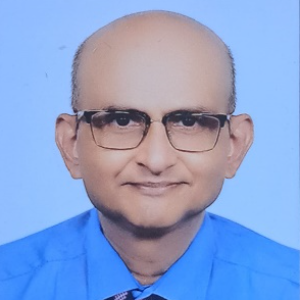Title : Natural molecule-encapsulated liposome-based formulations for dermal and transdermal applications for cancer therapeutics
Abstract:
Based on the current and future market trends, liposome-based drug delivery systems is expected to have a phenomenal market size of 10 billion US dollars by the year 2035. The market potential has culminated in the synthesis and characterization of several liposomal products and are currently in the different phases of development with some of the products having crossed the third phase of the clinical trials. Also, several products have been patented and these include different drugs and drug combinations (doxorubicin, paclitaxel, cisplatin, and vincristine. Different methods have been employed for the synthesis and characterization of the different types of liposomes (conventional, charged, stealth, actively targeted, stimuli-responsive, bubble, Solid Lipid Nanoparticles, Nanostructured Lipid Carriers, nonlamellar lipid nanoparticles, ethosomes, echogenic liposomes) with different compositions, thereby being critical determinants of their physicochemical properties influencing their stability; encapsulation efficiency and drug release behavior as well as the penetration/retention in the dermal compartment. Other categories of liposomes (for e.g., niosomes and ultra-deformable liposomes/transfersome) have shown potential as drug delivery tools for dermal8 and transdermal applications. Since most of the drugs currently deployed in the developing world are from natural sources (generally considered to be relatively less toxic), and have limitations in terms of bioavailability, stability and uptake, it is logical to consider liposome-encapsulated natural molecules (for e.g., flavonoids -an important category of polyphenolics and stilbenoids -for example Pterostilbene) including targeted approaches to overcome these hurdles in the drug development process. For example, a combination of software, thermal-based method, FT-IR, AFM and SEM-based morphology strategies were employed to demonstrate increased permeation (reversible alterations at the surface) and drug deposition with rat skin as the model system. Our work involved the demonstration of a reduction in IC50 and an increased activation of a marker enzyme (caspase-14 -involved in terminal differentiation processes in the cornifying layers of the huma epidermal compartment) in HaCaT cells treated with un-encapsulated and encapsulated luteolin. This work substantiated our earlier work, wherein we showed that Luteolin increased the terminal differentiation process in HaCaT in comparison with Vitamin D3 (our reference molecule). In addition, others have reported that Luteolin-loaded elastic liposomes (based on ex vivo rat skin-based permeation studies as well in MCF-7 based cytotoxicity studies) have facilitated delivery of the drug through the transdermal route and have potential for the elimination of breast cancer cells. It is obvious that the whole process of the development of liposome-based nano-formulations should be paralleled with their testing in suitable in vitro model systems representative of dermal/systemic cancerous conditions (local/surface accumulation versus systemic absorption) as well as suitable healthy tissue as controls, that can reduce, if not replace, the costly and time-consuming tests involving animals as the well address the serious ethical concerns raised with respect to their use for drug testing purposes.
Audience Take Away Notes:
- Understand and apply the knowledge gained from this lecture -translational research in liposome-based delivery systems
- Scientists/Technicians specifically in this area of drug delivery systems will benefit from this presentation
- Scientists in the area of parent molecule research can extend their research activities to addressing solubility/permeability-related bioavailability concerns
- Solutions for designing drug delivery systems
- This approach can also potentially address side-effects/dose-limiting toxicity issues
- Possibly provide a medium for international collaborations with partners interested in this topic



